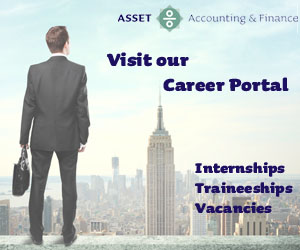For recruiters like Bart Doornink (ING), LinkedIn is an important tool for finding and screening candidates for vacancies. It’s one of the organisation’s first impressions of you as a candidate. Bart explains how you can get the most out of your profile and your CV (and also some of the pitfalls to avoid!).
The arrival of LinkedIn opened up a whole new world for recruiters and employees in the Netherlands. Whereas organisations used to have to wait for candidates to apply to them, recruiters can now use LinkedIn to actively search for potential new employees. Bart: “Through LinkedIn, and to a lesser extent through other social media, we can get a better picture of you as a potential candidate. Your online presence enriches the application process; it’s an important factor in presenting yourself professionally.”
Standing out from the crowd
In 2016 LinkedIn had 4.2 million users (source: Newcom). How can you ensure your LinkedIn profile stands out from the millions of others? Bart advises: “First of all make sure that your profile is complete, including a recent photo – preferably no more than a year old. You should be the only person in the picture and clearly recognisable, ideally standing in front of a plain background and dressed professionally. Your header text describes who you are and what you’re looking for. Your summary states your strengths, your career highlights and says something about the future, such as that you’re open to new challenges. Be clear and to the point when describing your skills. Apart from that, it’s nice if you have 500+ connections – so add your classmates from secondary school while you still can! And stick to one language: either English or Dutch, depending on your ambitions.”
Lack of experience?
Students and recent graduates often provide only brief details of their work experience in their LinkedIn profile, simply because they feel like they have little to say at the start of their career – but this is a very important part of your profile! Listing more than one position will make you 12 times more likely to be found. So what can you say about your career if you’re still only on the first rung of the ladder? “Personally, I’m really interested in your extra-curricular activities. Have you helped someone with their bookkeeping? Or given them any other kind of financial advice? Perhaps you’ve been treasurer of a committee or an event? Include everything you can think of! Show that you’ve achieved results and shouldered responsibility. Studying is about more than just learning the theory; above all, it’s what you do in your spare time that contributes to your personal development. So if you’ve done an internship abroad or have been travelling, say so! For us, things like that are the icing on the cake.”
Bart has a couple more tips for putting together a good CV: “Your CV should have a clear and logical layout. Don’t get carried away with fancy fonts and colours; stick to a subtle design and keep it businesslike. Less is more. In the Career section, list the most relevant issues first and put your qualifications at the top. Opinion is divided among recruiters as to whether or not your CV should include a photo. I myself like to see a photo, I think it makes your CV more personal. But if you decide to include a photo, make sure it’s a professional one – not a selfie, and make sure you’re dressed appropriately. You don’t need to wear a suit and tie, but no holiday snaps either (and it does happen, believe me!).”
What not to do
What kinds of things really don’t belong on a CV? “Hobbies are fine – in fact we like to see details of your interests on your CV – but not if your hobby is drinking beer. And you don’t have to include every single grade for every single subject. It’s important that you’ve got good results in subjects that are relevant to the vacancy, so just list those grades. If you had part-time jobs ten years ago that have nothing to do with the vacancy you’re applying for, leave them out or group them together. Whenever you ‘like’ something on social media, it gives your connections insight into what’s on your mind so that’s positive. But don’t post or like things just for the sake of it. And keep your other social media accounts separate – don’t include links to your Facebook or Instagram pages on LinkedIn.”
Before going live…
Are you nearly ready to publish your new, updated LinkedIn profile? “Always get friends or family to double-check it for you. Then read everything through yourself one last time and ask yourself ‘Would I put this on a billboard at the side of the road or not?’. If you have any doubts, don’t do it.”
Pitfalls on your CV
– Mismatches between your CV and your LinkedIn profile
– Spelling mistakes
– Confusing
– Stating competences that don’t tie in with your personal description
– Unprofessional photo
– Gaps in your CV: tell the truth, make sure that you provide the full story, even if you haven’t finish a study programme for example
– Submit a PDF (not a Word file)
– Make sure that the layout is tidy
– Use the ‘I’ form instead of the third person singular
– Do not include half-truths to make things seem better than they really are

Who is Bart Doornink?
Bart has been working at ING since January 2016 as a Talent Acquisition Advisor – Campus Recruitment
Responsible for traineeships (the Risk and Finance tracks) and interns
Held a LinkedIn workshop and CV training at ASSET
Has a bachelor’s degree in business administration and a master’s in strategy (Radboud University Nijmegen)
Organised the Batavierenrace student relay race: “The best decision ever, it helped to shape me into who I am today. I learnt to communicate openly in a team and how to deal with different stakeholders with different interests.”
About ING:
“I was afraid that I wouldn’t be able to hold my own in such a corporate environment as a bank, but I love it here and I get plenty of opportunities to work on my own development. Are you thinking about doing an internship or traineeship (at ING)? If so, check out the events at your university or visit companies’ in-house events to find out if it’s the right thing for you.”
Bart on LinkedIn

















